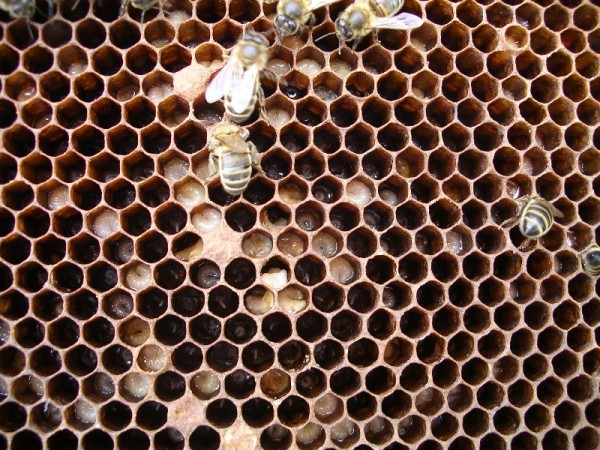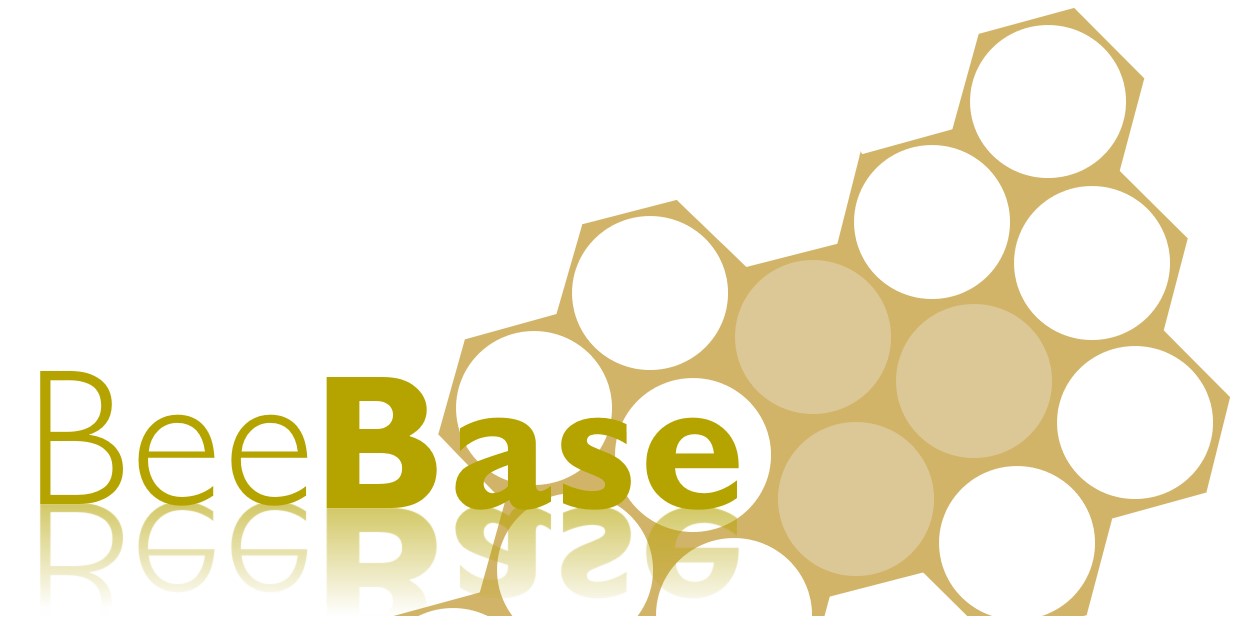Foulbrood
If you suspect that your colonies have Foulbrood disease, in the first instance, you should contact your local Seasonal Bee Inspector (or Regional Bee Inspector if your SBI is unavailable). If your local Inspector is unable to get to the apiary promptly, you can send in a voluntary comb or larval sample into our laboratory by using our Voluntary Sample Submission Form. The form can also be used for suspect exotic pests. In this case, please fill in as much information on the form as possible so that we can contact you should we require more information.
 European Foulbrood (EFB) infected comb (Note the larvae with the characteristic "melted down" appearance)
European Foulbrood (EFB) infected comb (Note the larvae with the characteristic "melted down" appearance)
Adult Bee Disease Diagnosis
The National Bee Unit has discontinued the adult bee disease screening service which tested samples of bees for the presence of Nosema spp., Amoeba and Acarine (Tracheal mites). In previous years, the demand for this non statutory service has been high which warranted the need for a commercial service. However, in recent years the number of samples and requests by beekeepers for an adult bee disease screening has reduced dramatically, with the service rarely being used throughout the year. Beekeepers who wish to have bees tested for non-statutory diseases may still be able to obtain help from their local associations.
Suspected Poisoning
Suspect honey bee poisons are investigated as part of the Wildlife Investigation Scheme by Natural England. The NBU’s role when inspecting the hive is to rule out any other cause of colony death such as disease or beekeeper error and to collect a sample of bees if one has not already been done so. At least 200 bees are required for a poison analysis, approximately the number that will fit into a large ‘Cooks’ matchbox. These need to be securely packaged but not in a plastic bag and preferably not flattened.
Suspect Exotic Pests
Beekeepers monitor for the exotic pests Small Hive Beetle and Tropilaelaps mites when they are a part of our Sentinel Apiary Scheme. However, you can also submit a voluntary sample if you think you may have found either of these pests. When sending in an exotic pest sample please place it in the freezer overnight before posting it and inform the NBU that you are going to be sending it in.
Again, as above, use a suitable sturdy container (cardboard rather than plastic) and provide as much detail as possible about the sample by using the Voluntary Sample Submission Form.
Imports From Third Countries
For guidance on the process for reporting imported queen bees, including on submitting queen cages and attendant workers, please see the FAQ section of our Imports and Exports page.
Postage Costs
When sending samples to the National Bee Unit, please be aware you must cover the delivery costs unless prepaid labels have been provided. Please send samples to the following address:
NBU laboratory, Lab 02G06, York Biotech Campus, Sand Hutton, York, YO41 1LZ
